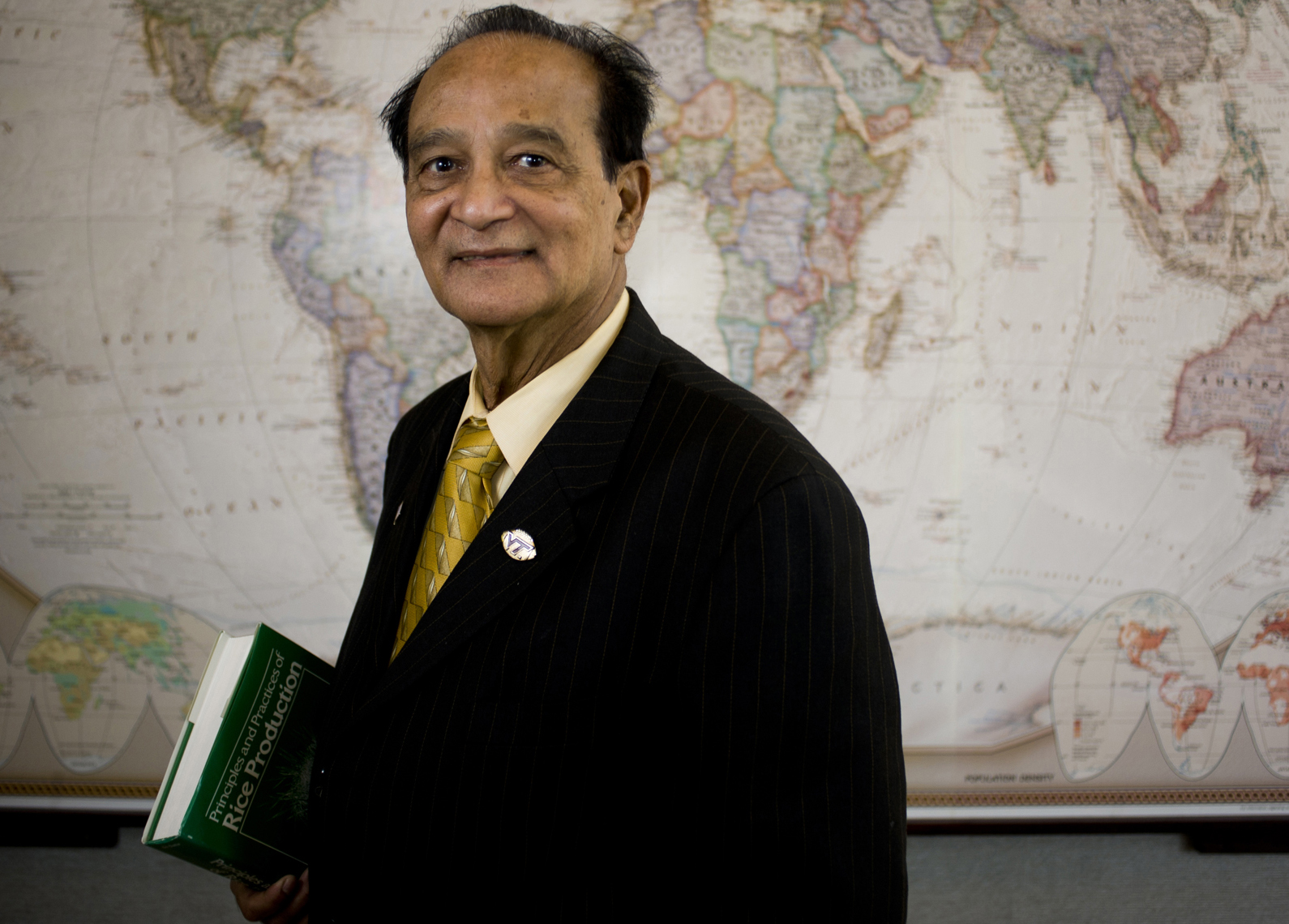S.K. De Datta announces retirement

S.K. De Datta – who first came to campus in 1991 when Virginia Tech had an international research, education, and development portfolio of less than $1 million, now grown to almost $100 million – is retiring effective Aug. 31. Under De Datta's leadership, the total portfolio grew to about $150 million in 20 years.
De Datta, associate vice president for international affairs and director of the Office of International Research, Education, and Development, doubled the number of students in study abroad programs, grew the international research office to a staff of 28, and on one day in 2004 received two $17 million federal grants that set a record as the largest award to a university from the U.S. Agency for International Development. During the last year the office added more than $30 million in grants including one of the single largest to Virginia Tech in terms of dollar value: a $28 million project in Senegal over five years.
“What S.K. De Datta has achieved during his tenure at Virginia Tech is just remarkable,” said John Dooley, vice president for Outreach and International Affairs. “From the monumental growth of research studies that improve people's lives across the globe to his shepherding of Virginia Tech's plans to build the VT, India campus, the university has seen nothing but achievement on his watch.”
De Datta has served as the principal investigator and administrator for global projects in 44 countries with an emphasis on promoting economic development, food security, sustainable natural-resource management, and gender equity. Current projects include redeveloping agriculture in post-conflict Southern Sudan by training the next generation of agriculturalists and revitalizing agriculture in Senegal by bolstering university curricula as part of the U.S. government's Feed the Future Initiative.
Other highlights from De Datta's 20-year tenure at Virginia Tech include
- Chairing the International Strategic Directions Team, which crafted an international strategic plan for the university;
- Leading the push to develop regional strategies to include centers around the world;
- Setting up the International Support Services Office to assist foreign scholars and handle international visitors; and
- Situating the offices of international affairs and international research, education, and development in a single building, creating one of the more comprehensive international program offices among land grant universities in the United States.
De Datta is also credited with initiatives abroad that have boosted Virginia Tech's stature and global recognition, created research partnerships, and established more avenues for Virginia Tech students to secure jobs in the international marketplace.
De Datta began his career as a scientist studying rice-production systems to help solve the problem of world hunger. He is considered one of the architects of the "Green Revolution in Rice." His many national and international awards include a Presidential Citation Award for his advancement of food security. Announcing his retirement, he said, "It has been a great 20 years for me in serving Virginia Tech. I wish the next generation of leaders great success."
Dedicated to its motto, Ut Prosim (That I May Serve), Virginia Tech takes a hands-on, engaging approach to education, preparing scholars to be leaders in their fields and communities. As the commonwealth’s most comprehensive university and its leading research institution, Virginia Tech offers 240 undergraduate and graduate degree programs to more than 31,000 students and manages a research portfolio of $513 million. The university fulfills its land-grant mission of transforming knowledge to practice through technological leadership and by fueling economic growth and job creation locally, regionally, and across Virginia.




